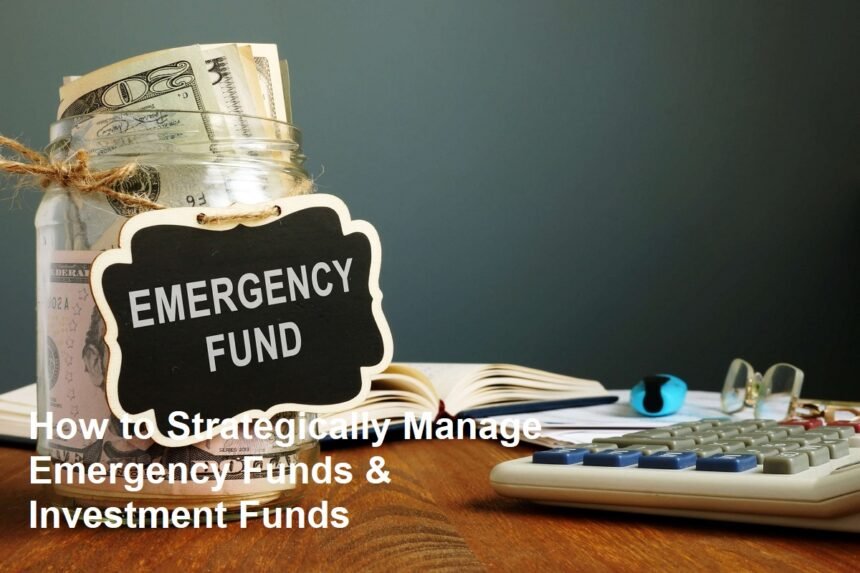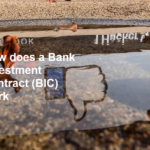Introduction
Building true financial security requires balancing two critical pots of money: your emergency fund and your investment fund. These serve fundamentally different purposes and require distinct management strategies. Confusing them or neglecting one can lead to financial stress or missed opportunities. Here’s how to effectively manage both:
1. Understanding the Fundamental Difference
- Emergency Fund:
- Purpose:Your financial safety net. It exists only to cover unexpected, essential expenses that disrupt your normal cash flow (job loss, major medical bill, urgent car repair, home disaster).
- Core Principle:Liquidity and Safety. Accessible immediately without risk to the principal amount.
- Risk Tolerance: Preservation of capital is paramount.
- Time Horizon:Immediate to Short-Term. Needed unpredictably, often at a moment’s notice.
- Investment Fund:
- Purpose:To grow your wealth over time, outpacing inflation and achieving long-term financial goals (retirement, buying a home, children’s education, financial independence).
- Core Principle: Willingness to accept calculated risk for potential higher returns.
- Risk Tolerance:Varies (Low to High). Depends on your goals, age, and personal comfort with market fluctuations.
- Time Horizon:Long-Term (5+ years, ideally 10+). Allows time to ride out market volatility.
2. Building and Managing Your Emergency Fund: Priority #1
- Step 1: Set Your Target:Aim for 3-6 months’ worth of essential living expenses (rent/mortgage, utilities, groceries, insurance, minimum debt payments). Consider more (6-12 months) if you have irregular income, are self-employed, or work in a volatile industry.
- Step 2: Choose the Right Vehicle:High-Yield Savings Account (HYSA) is ideal. It offers:
- Safety:FDIC/NCUA insured (up to limits).
- Liquidity:Instant access via transfers or debit card.
- Decent Returns:Higher interest than traditional savings (helps slightly offset inflation).
- Separation:Keep it in a separate account from your checking to avoid temptation.
- Step 3: Fund It Aggressively (Initially):Treat this as a non-negotiable expense. Cut discretionary spending, allocate windfalls (tax refunds, bonuses), sell unused items. Automate transfers each payday.
- Step 4: Maintain and Replenish:Once funded, leave it alone! Only tap it for genuine emergencies. If you use it, pause investing temporarily and focus immediately on replenishing it to your target level. Re-evaluate the target amount annually or after major life changes.
3. Building and Managing Your Investment Fund: After the Safety Net is Secure
- Step 1: Define Your Goals & Timeline:Be specific (e.g., “$500k for retirement in 25 years,” “$50k for house down payment in 7 years”). This dictates your investment strategy and risk level.
- Step 2: Know Your Risk Tolerance:Honestly assess how you’ll react if your investments drop 20% or 30%. Can you sleep at night? This determines your asset allocation (mix of stocks, bonds, etc.).
- Step 3: Choose Your Investment Vehicles:Start simple and diversified:
- Low-Cost Index Funds / ETFs:Provide instant diversification across hundreds or thousands of stocks or bonds. Ideal core holdings (e.g., S&P 500 index fund, Total Stock Market fund, Total Bond Market fund).
- Target-Date Funds (TDFs):Automatically adjust asset allocation (stocks to bonds) as you near your target date (e.g., retirement). Simple “set it and mostly forget it” option.
- Robo-Advisors:Automate investing based on your goals and risk tolerance. Good for beginners or hands-off investors.
- Avoid:Individual stock picking or complex derivatives until you have significant experience and knowledge (and even then, limit exposure).
- Step 4: Automate Contributions:Treat investing like paying a bill. Set up automatic transfers from your paycheck or checking account into your investment accounts after your emergency fund is funded. Consistency is key.
- Step 5: Embrace Long-Term Mindset & Discipline:
- Buy and Hold:Resist the urge to constantly buy and sell based on market noise. Time in the market beats timing the
- Dollar-Cost Averaging:Regular contributions automatically buy more shares when prices are low and fewer when high, smoothing out the average cost over time.
- Rebalance Periodically (e.g., annually):Adjust your portfolio back to your target asset allocation if market movements shift it significantly. Sell high (overweight assets) and buy low (underweight assets).
- Never Raid for Emergencies!Your emergency fund exists for this. Dipping into investments forces you to sell, potentially at a loss, and derails compounding.
Key Management Principles for Both
- Pay Yourself First:Allocate savings (emergency) and investments before discretionary spending.
- Budget is the Foundation:Know your income and expenses to determine how much you can save and invest.
- High-Interest Debt is Enemy #1:Prioritize paying off high-interest credit card debt before significant investing. The interest cost usually outweighs potential investment returns.
- Keep Them Separate:Physically and mentally separate your emergency fund and investment accounts. Never commingle funds.
- Review Regularly (but Don’t Obsess):Check your emergency fund level quarterly. Review investment performance and rebalance annually or semi-annually. Avoid daily portfolio checks.
- Increase Contributions Over Time:As your income grows, proportionally increase your savings and investment contributions.
Conclusion
Effectively managing emergency funds and investment funds is the cornerstone of a resilient financial life. Build your unshakeable emergency fund first – it provides peace of mind and prevents debt during crises. Then, consistently invest for the long term using diversified, low-cost vehicles. By understanding their distinct roles, choosing appropriate accounts, automating contributions, and maintaining discipline (especially not mixing the two!), you create a powerful system that protects you from the unexpected while steadily building wealth for your future goals. Start where you are, prioritize the emergency fund, and let consistent, informed action compound into lasting financial security.












